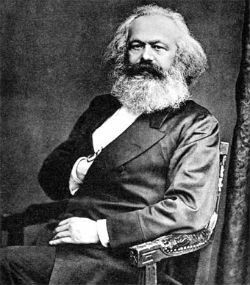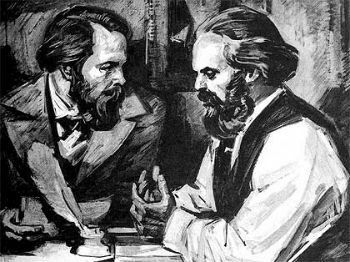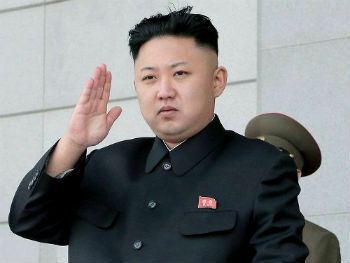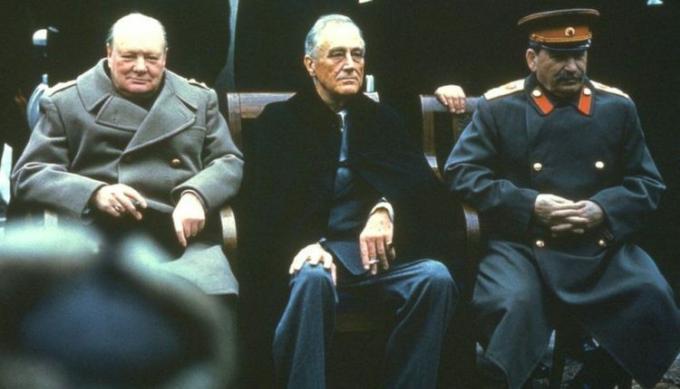Karl Marx (1818-1883) was a philosopher, German political activist, one of the founders of scientific socialism and sociology.
Marx's work influenced Sociology, Economics, History and even Pedagogy.
Karl Marx Biography

Karl Marx portrait
Karl Marx was born on May 5, 1818, in the city of Treviris, Germany, in the midst of a well-off family.
He first entered the University of Bonn and later transferred to Berlin to study law. He would leave the course to devote himself to the study of Philosophy at the same institution. There he would argue with the Young Hegelians that he defended the constitution of a strong and efficient state, just as Hegel had done.
In 1842, working at the newspaper "Renana Gazette" knows Friedrich Engels, with whom he would write and edit numerous books. Later, the gazette is closed and Marx goes to Paris.
He also marries the daughter of a baron, Jenny Von Westaphalien, with whom he would have seven children, of which only three would reach adulthood. He also had a child with socialist activist and maid, Helena Demuth. The paternity of the child would be assumed by Engels.
After the closing of the "Gazeta Renana", the following years would not be easy, as Marx led publications that harshly criticized the German government. He was expelled from France and Belgium at the request of the German government.
Thanks to a fundraiser by his admirers and friends, Marx leaves for London where he continues his investigations into industrial society.
Karl Marx is sick with a sore throat that prevents him from speaking and eating normally. As a result of bronchitis and respiratory problems, he died in London on March 14, 1883.
Works and theories of Karl Marx
With the collaboration of the intellectual, also German, Friedrich Engels, Marx published the Communist Manifesto, in 1848. In it, Marx criticizes the capitalism, exposes the history of the labor movement and ends with the call for the union of workers around the world.
This took place on the eve of the Revolution of 1848 in France, the so-called Spring of the Peoples.
In 1867, he published the first volume of his most important work, The capital, where he synthesizes his criticisms of capitalism. This collection would cause a revolution in the following decades in the way of thinking about history, economics, sociology and other social and human sciences.
Read more at Historical Materialism
Criticism of Capitalism
For Marx, economic conditions and class struggle are transforming agents of society.
The ruling class never wants the situation to change because it is in a very comfortable situation. The underprivileged, on the other hand, have to fight for their rights and this fight would move History, according to Marx.
Marx thought that the triumph of the proletariat would give rise to a classless society. This would be achieved by uniting the working class organized around a revolutionary party.
He also pointed to the “added value” when he explains that the employer's profit is obtained from the exploitation of the worker's labor.
scientific socialism
By elaborating a theory about social inequalities and proposing a way to overcome them, Marx created what was called "scientific socialism".
Against the capitalist order and bourgeois society, Marx considered inevitable the political action of the working class, the socialist revolution, which would give rise to a new society.
Initially, State control would be installed by the dictatorship of the proletariat and the socialization of the means of production, eliminating private property. In the next step, the goal would be communism, which would represent the end of all social and economic inequalities, including the dissolution of the state itself.
In 1864, in order to join forces, the "International Workers' Association" was founded in London, later known as the First International.
The entity expanded throughout Europe, grew a lot and ended up divided, after a long process of internal dissent. In 1876 it was officially dissolved.
know more:
- Class struggle
- utopian socialism
- Spring of the Peoples
Marxism

Picture depicting Engels and Marx discussing their theories
The reactions of workers to the effects of the Industrial Revolution gave rise to critics who proposed social reforms. They suggested the creation of a fairer world and were called socialist theorists, like Saint-Simon or Proudhon.
Among the various thinkers, the German Karl Marx, who lived in France, Belgium and England, witnessed the social transformations resulting from industrialization.
Read more at Marxism.
Influence of Marxism
Karl Marx's theories influenced the Russian Revolution of 1917, as well as theorists and politicians, among them Lenin, Stalin, Trotsky, Rosa Luxemburg, Che Guevara, Mao Tse-Tung, etc.
Each of them understood Marxist theory and sought to adapt it to their specific reality. Thus, we have “Marxism-Lenism” in the Soviet Union or “Dark Socialism” in Latin America. Several governments proclaimed themselves socialist such as the USSR, Cuba, North Korea, among many others.
Marx's phrases
- "Philosophers limited themselves to interpreting the world in different ways; what matters is to modify it".
- "The economic production and the social organization that results from it, necessarily for each epoch of history, constitute the basis of the political and intellectual history of that epoch".
- "The history of society to this day is the history of class struggle".
- "Men make their own history, but they don't make it under circumstances of their choice, but under those they face directly, bequeathed and transmitted by the past."
- "Without a shadow of a doubt, the capitalist's will is to line his pockets, as much as he can. And what we have to do is not to digress about his will, but to investigate his power, the limits of that power and the character of those limits."
Historical Context: Summary
Great economic, political and social transformations took place in Europe at the end of the 18th century and the beginning of the 19th century. All these changes were accompanied by theories and doctrines that sought to condemn or reform the bourgeois capitalist order.
Then, the socialist theories, linked to a new branch of science, political economy.
England was where most of this change took place. The country acquired a new social configuration with industrialization and the rural exodus that provided the workforce for the factories in the cities.
There was no labor legislation, the working hours in factories, installed in unhealthy places, were, in the majority, longer than 14 hours. Misery increased in the cities.
In addition to subhuman working conditions, workers faced enormous difficulties in times of war. During this period, hunger spread across the European continent, as a result of the high prices of foodstuffs.
Even more serious was the effect caused by the increasing use of machines in the production process. As a result, repetitive and automatic human work received less and less remuneration.
Discontent only increased as the reasons for conflict grew, heralding a social revolution. The first labor organizations emerged, the trade unions, who sought to organize the struggle of the working class, being seen as criminal organizations by the industrialists.
It was in this changing environment that Karl Marx lived and studied.
Want to know more? All Matter helps you:
- Industrial Revolution
- Questions about Karl Marx
- Differences between Communism and Socialism
- Dialectics: the art of dialogue and complexity
- Brazilian Philosophers You Need to Know


